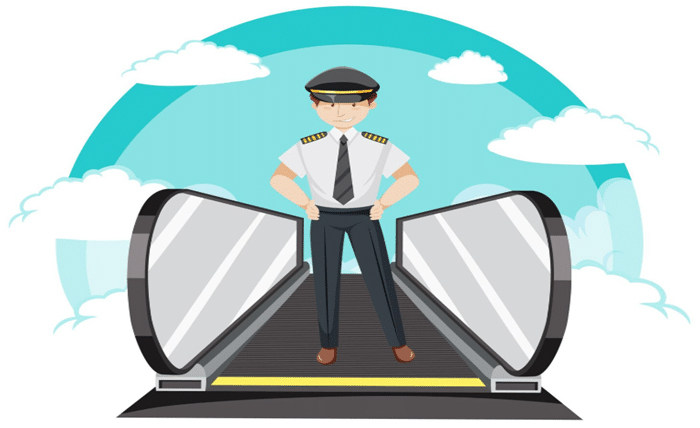
Being a police aircrew member is not a job like any other. It combines the thrill of aviation with the commitment of law enforcement. Those who aim to reach this position must hold certain qualifications and undergo rigorous training. In this post, we will go through what you need to provide to become a police pilot and the skills required to succeed.
Educational Background
So, how to become a police helicopter pilot? One thing is clear: a solid education is key. Generally, police agencies will only recruit candidates over the age of 21 who have completed a high school diploma or GED equivalency. That being said, a bachelor’s degree in aviation, criminal justice, or a related field can help. This type of degree imparts better insight into the nuances of aviation technology and the legal aspects involved in this career.
Pilot’s License
Obtaining a pilot’s license is essential. All candidates need to possess a valid commercial license from the appropriate authority. This license ensures that the pilot has the knowledge and skills to operate an aircraft safely. Training covers topics like navigation, meteorology, and aircraft systems.
Flight Hours
Cockpit experience is a must. Police pilots usually have a minimum flight hour requirement, which varies by agency but generally falls between 1,000 and 2,000 hours. This experience should include hours in the type of aircraft flown by the police, whether helicopters or fixed-wing planes. Flying hours are a very important metric in this regard.
Advanced Training
On top of regular flight training, potential police pilots must complete specialized courses. These programs address unique aspects of law enforcement aviation, such as aerial surveillance, urban navigation, and ground communication. This training enables pilots to complement police operations effectively.
Physical and Medical Requirements
Police pilots are subject to strict physical and health standards. They must undergo regular medical examinations to ensure they are in peak health condition. These tests cover vision, hearing, and cardiovascular fitness. These standards ensure pilots can perform their duties without physical limitations.
Law Enforcement Experience
Many police departments prefer applicants with law enforcement experience. This background helps candidates understand police procedures and promotes better working relationships with ground units. It also aids pilots in making the right decisions during missions. While not always mandatory, past law enforcement experience can be a significant asset.
Technical Skills
Proficiency with technology is essential. Modern police aircraft are equipped with sophisticated systems, requiring pilots to be adept at navigation, communication, and surveillance aids. Mastery of these systems improves operational effectiveness and supports mission success.
Decision-Making Abilities
Decisive and well-informed decision-making is critical in this fast-paced role. Police aviation missions are often high-stress situations, demanding that pilots quickly assess options and determine the best course of action. Effective decisions ensure safe and efficient operations.
Communication Skills
Clear communication is vital. Police pilots must coordinate with fellow officers, air traffic control, and emergency services. Being able to convey information concisely avoids misunderstandings and promotes teamwork. This skill is essential for both safety and operational efficiency.
Mental Resilience
Handling stress is part of the job. Pilots need to stay calm under pressure and remain flexible, allowing them to adapt to changing circumstances. Mental resilience enables pilots to stay focused and make sound decisions despite adverse conditions.
Continuous Learning
The aviation industry continually evolves, and police pilots must keep up. Ongoing education and training help pilots stay current with new technologies, regulations, and best practices. A dedication to lifelong learning is necessary to maintain high standards and deliver quality performance.
A combination of education, experience, and personal qualities is required to become a police pilot. Candidates need stamina, agility, and flexibility for the demanding nature of the job. Those who pursue this path play a vital role in supporting law enforcement and public safety. Meeting these requirements prepares future pilots for a challenging yet rewarding career in police aviation.
